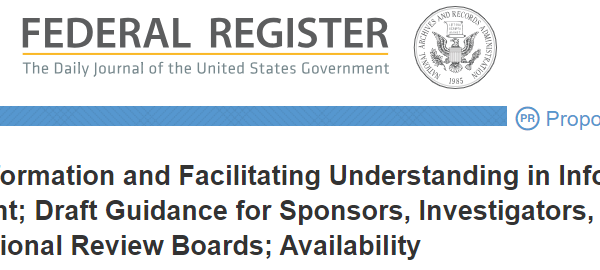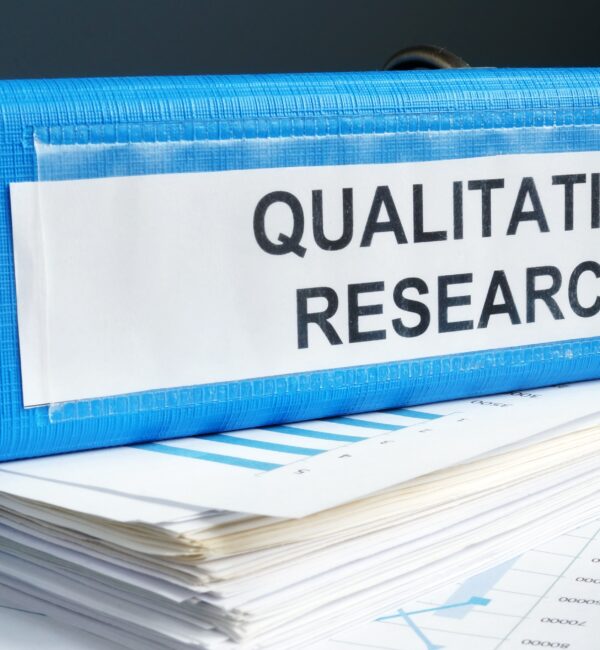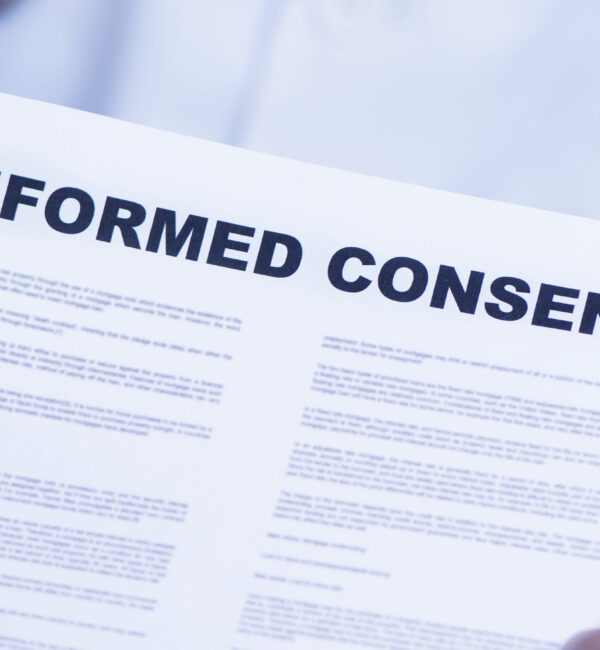FDA and the Office for Human Research Protections (OHRP) issued a 16-page draft guidance, entitled “Key Information and Facilitating Understanding…
Read MoreBy James M. DuBois, DSc, PhD There is currently nothing to prevent qualitative researchers from dumping data that are sensitive…
Read MoreThe FDA issued guidance in August 2023 to provide more clarity to IRBs, clinical investigators, and sponsors in complying with FDA’s informed…
Read MoreBy Elena Ghanaim and Jonathan Lawson The NIH Data Management and Sharing (DMS) Policy is a watershed moment for the…
Read MoreBy Emily E. Anderson, Stephanie Solomon Cargill, and Ryan Spellecy Engaging communities in research beyond mere enrollment is not new…
Read More




